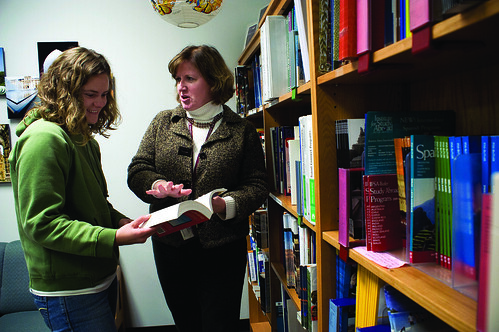Where in the world are Temple Owls?
Each year, more than 1,000 students get their passports stamped and head to all corners of the world to study abroad. With the current recession, studying abroad might become out of reach for some.
During the 2007-2008 academic year, 1,024 students chose to study abroad, a 12 percent increase from the previous year. Over the past five years, the number of students who chose to book their trips around the globe doubled.
Denise Connerty, assistant vice president of the Office of International Affairs, said some credit can be given to President Ann Weaver Hart, who helped students recognize the importance of studying abroad.
“International experience is an important asset to résumés. It shows that those students show initiative and are risk takers,” Connerty said.
Temple students have the option to travel anywhere in the world. The most popular Temple-sponsored destinations are in the United Kingdom, Rome. Students also study in Tokyo.
Last year, 240 students booked their tickets to Rome, and 120 traveled to Tokyo.
With programs in some of the most expensive cities in the world, students planning to travel for the upcoming spring semester might feel the crunch of the economy.
“We always have students who withdraw for one reason or another, but no students have withdrawn for the spring yet due to money,” Connerty said.

Looking at a shorter program may not be the answer to help alleviate some financial pain. Those who plan on going abroad for summer programs may spend more for travel arrangements.
Connerty said it may not be cost effective to fly to another country for a short period.
Erika Studer, a junior Spanish and secondary education major, said she plans to travel to the University of Oviedo in Spain this spring.
Studer, who plans to become fluent in Spanish and experience a new culture while away, said the current economy has not altered any of her plans.
“Luckily, I have been saving for quite a while knowing that I really wanted to study abroad,” she said.
Connerty said cost is always an issue.
“Flights are definitely more and have ridiculous rules about luggage,” Studer said. “But since I am going with a Temple program, my tuition and housing are almost identical to what I am paying in Philadelphia.”
Those who plan to study abroad have to be willing to make an investment.
“Students should never say they aren’t going because they can’t afford it,” Connerty said. “Funding is always available.”
The Office of International Affairs provides financial assistance for those traveling abroad, along with the Diamond Ambassador Awards, financial aid and external sources.
Students should know about grants and aid that can be used to help pay for their time away.
Studer received one of the new Diamond Ambassador awards for studying abroad, which is giving her $2,000 to help with tuition and other expenses.
Those who plan to journey around the world can also look to Hart’s passport scholarship program, which issued 126 passports last year to current students as a way to help cut costs.
“It is a really unique program that helps,” Connerty said about the program.
Before she goes to Spain, Studer said she intends to create a budget with the help of her parents.
“I know I am splitting my funds up for what I am allotting myself for spending and going out and what is considered traveling money,” Studer said.
As for students studying abroad in the summer, Connerty said it’s a waiting game as to how the economy plays out.
“We’ll have to wait to see what happens in the summer.”
Matthew D. Wargo can be reached at mdwargo@temple.edu.



Be the first to comment